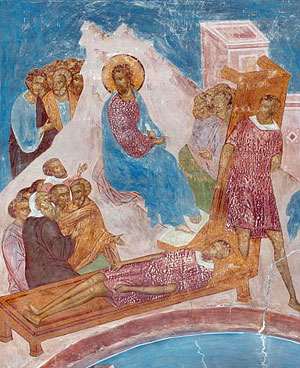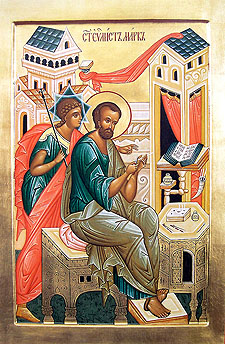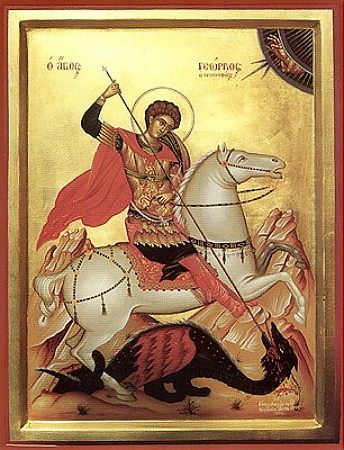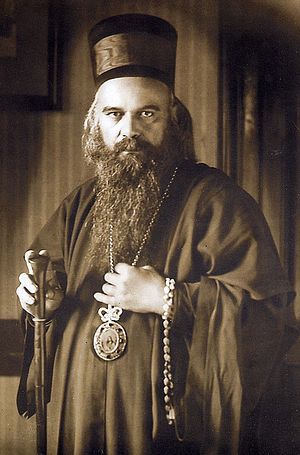Well-known Russian pastors speak about what will happen at the universal resurrection of mankind and why we mustn’t postpone the Paschal experience until later, just hoping for the best.
 Schema-Archimandrite Iliy (Nozdrin)
Schema-Archimandrite Iliy (Nozdrin)
Pascha is the testimony to the truth of our faith
Schema-Archimandrite Iliy (Nozdrin):
The Gospel is vital for man; it is the Good News of our salvation. And Pascha is the Gospel accomplished: the Resurrection of Christ and the co-resurrection of our souls with the Lord! We need not only food and drink, but the soul needs hope and joy. And Pascha is the testimony to the truth of our faith, on the foundation of the Resurrection of Christ.
If we Christians live according to the Gospel, it means we also testify to the Resurrection of Christ, as St. Seraphim of Sarov testified to it, greeting everyone with, “My joy, Christ is Risen!”
If we want to study something, even a completely mundane knowledge or craft, we go talk with a teacher. It’s the same with the Lord—in prayer, in reading the Gospel, in the Mysteries of the Church. The mind, as St. Seraphim of Sarov says, should be swimming in the Gospel.
In the experience of the spiritual life, the Truth that we are not limited to this life is authentically revealed to us—the Truth of the Resurrection. He who has repented and experienced this doesn’t need anything explained to him. He himself can bear witness with his life to this change, this “passing over”—as the word Pascha is translated.
Our forefather Adam should have been immortal. He was commanded to cultivate and preserve Paradise (cf. Gen. 2:15). In Paradise, he was with God—the Source of blessings and light. But through sinning, he partook of the darkness of a painful existence damaged by evil. It’s the same with us every time we sin—we are darkened.
But by the Cross of Christ, we are now given the ability to die to sin, so that as the Lord Himself suffered on the Cross, died, overcame death, and resurrected, so we are co-resurrected with Him to eternal life, and a joyful life here already.
When a man freely expresses his will and chooses to live with God, assimilating the Gospel commandments, he becomes heir to eternal bliss. Living in this world, many seek for happiness and glory. They perceive everything through the prism of their illusory happiness, as it presents itself to everyone. But only the Lord, Who alone is the way, the truth, and the life (Jn. 14:6), gives the soul rest in this vain world; and joy that none can take from us (cf. Jn. 16:22).
We simply need to clean our soul in order to draw near to Christ. More precisely, if someone seeks the Lord, God Himself prunes every branch that produces fruit for Him, so it would bring forth more fruit (cf. Jn. 15:2).
We have to pray, fast in a Christian manner, live by the Gospel, and be Church people. Then we’ll truly experience Pascha. Then all our difficulties, sorrows, illnesses, and disorders will dissolve in this joy, when we feel that the Lord is with us!
He is always near to us. Behold, I stand at the door, and knock, He says, if any man hear My voice, and open the door, I will come in to him, and will sup with him, and he with Me (Rev. 3:20). If only we want to hear His voice, He will always help and teach us everything. He is the Teacher. I was dead; and, behold, I am alive for evermore (Rev. 1:18).
The Lord has overcome the devil. And if we are with the Lord, we will be victorious with Him. The just shall live by faith (Rom. 1:17). He that believeth not is condemned already (Jn. 3:18). The truth of God comes true in eternity and is revealed already in this present life.
Christ is Risen!
Pascha for thieves
Hieroschemamonk Valentin (Gurevich), confessor of the Moscow Donskoy Monastery:
The Lord said: Whoever loves Me will follow Me, and where I am, there shall also My servant be (Jn. 12:26). Therefore, deny yourself, and take up your cross, and follow Him (cf. Mk. 8:34). This is the path to resurrection and Pascha for every soul, and in this, in particular, is its God-likeness.
At the same time, we must remember that to embark upon this path of the cross means to comport yourself in life as did the Lord Jesus on the Cross. He did not get angry, was not offended, and did not have malice or hostility towards those who humiliated Him, spat upon Him, and afflicted mortal wounds upon Him; He did not call twelve legions of angels for revenge. He also preserved the Savior’s love for them, for He was crucified for them as well. He was not concerned that it not be so painful for Him, but that these people, who changed their “primordial goodness,” their initial God-likeness into beastliness, devilishness, could return this God-likeness to themselves again by repentance. By His prayer to the Father: Father, forgive them; for they know not what they do, He sought to forestall their immediate annihilation and to give them time for such repentance.
 Hieroschemamonk Valentin (Gurevich)
Hieroschemamonk Valentin (Gurevich)
Thus, a Christian’s path in life is the way of the Cross, of Golgotha. And the “invincible victory” of the Cross consists not in smashing the heads of the enemies, but in expelling malice, hostility, and the ability to take offense and have vengeful thoughts out of ourselves. In our hearts should remain only the love of Christ, desiring repentance and salvation for our enemies. Only thus will we truly follow Christ and be resurrected with Him to blessed eternity, that is, in His words, “We will be where He is.”
For, as St. Anthony the Great said, “He who has no malice is perfect and Godlike.”
We cannot fulfill this commandment ourselves. Emptied of God from the time of our forefathers, we remained only with our animal, biological nature, having an instinct of self-preservation, which makes it impossible for us to fulfill this commandment of Christ’s love for our enemies, as long as we do not have God in our hearts.
Only if we fulfill the first commandment of love for God with all the forces of our nature and unite ourselves with Him and acquire Him in our heats will we be able to relate to people as does God. Only if we unite with God and experience the Resurrection of Christ in our hearts will we be able to fulfill this commandment of love for all. We will relate to even the most difficult people in a Godlike way. The Lord died for all. And He commanded us: Be ye therefore perfect, even as your Father Which is in Heaven is perfect (Mt. 5:48).
Likeness to the Lord, Who said in the hour of His Ascension: I am with you always, even unto the end of the world (Mt. 28:20), is also revealed in the fact that after death not only the righteous, but also repentant thieves render help, like the Lord, to people in tight spots.
There was such a case recently: One criminal boss, having served more than one very long prison term, suffered a clinical death during which he met precisely the Wise Thief in the other world, who showed him the torments of hell of his deceased accomplices and relatives, criminals and suicides, and guided him on the path of Truth.
Having come to a state of extreme humility, this former bandit returned to life as a radically changed man. Previously completely removed from faith and the Church, he became distinguished by a fervent and active faith. Previously, he on principle avoided any work, even while in jail, because, as an “authority,” he could use the services of criminals who were below him in rank. And having returned to life, he began ceaselessly building churches and chapels. He was helped by his former “brothers in arms”—other criminals who considered him an authority. He pulled them along. That is, not only did he repent and convert, but he brought others to God as well. These are real people. They became monks. This is how the Lord saves…
In reality, we are all thieves (criminals, having transgressed the commandments of God); the only question is: Are we wise thieves or not?
It is more difficult for a “decent” person who hasn’t committed any particularly serious sins, like a Pharisee, to repent than someone who has suffered a serious fall, which the Lord sometimes allows for a man to come to his senses and take the path of saving repentance.
The reality of this phenomenon—of genuine repentance after an extreme fall—has been proven repeatedly in the history of Christianity. And this spiritual law, as always, applies both to individual people and to a people as a whole. This is the repentance of the publican who, beating himself on the breast, dared not to look up to Heaven; the repentance of David, who fell to the ground and lay motionless for seven days until the Prophet Nathanael came. It is the repentance of the thief Barbarus, who walked on all fours like a beast, eating grass; the repentance of St. James the Faster, who for seven years did not leave the cave filled with stones, until he was dragged out and forced to pray. And to his surprise, the Lord heard him and worked a miracle. The Apostles Peter and Paul were more guilty before the Lord than the other Apostles and turned out to be stronger than all in word and in deed—and the most zealous, and preeminent.
“He who is forgiven more will love more” (cf. Lk 7:43). It is in this sense that we must understand the words, “If you do not sin, you will not repent,” should be understood. And this is precisely why the Lord sometimes allows a man, or even a nation, to have a terrible fall. And He doesn’t order anyone to be judged, or to be exalted. The publicans and the harlots go into the Kingdom of God before you (Mt. 21:31). This is, in the end, the repentance of Nineveh—that is, of the whole people.
St. Seraphim of Vyritsa foretold that this phenomenon would take place in Russia: “When they go to the extreme, the more fervently will they repent.”
You can see in the example of individual people, and with a nation and all of mankind how the Lord often does not hurry to intervene and “set things right;” He does not rush to help, so that a man, a nation, or mankind would through its own experience come to a firm, definitive belief regarding its complete inability to manage without God.
We have come to the knowledge of a great truth, contained in the words: Without me ye can do nothing (Jn. 15:5); that is, we have attained such a degree of humility that attracts the abundant grace of the Holy Spirit.
We were dead in our sins (and for those who think this is all about unchurched people, we recall that the sin of Pharisaic self-aggrandizement is one of the gravest) and now we are risen in Christ for eternal life!
Indeed Christ is Risen!
 Behold, thou art made whole: sin no more, lest a worse thing come unto thee (Jn. 5:14).
Behold, thou art made whole: sin no more, lest a worse thing come unto thee (Jn. 5:14).
 The Holy Apostle and Evangelist Mark, also known as John Mark (Acts 12:12), was one of the Seventy Apostles, and was also a nephew of Saint Barnabas (June 11). He was born at Jerusalem. The house of his mother Mary adjoined the Garden of Gethsemane. As Church Tradition relates, on the night that Christ was betrayed he followed after Him, wrapped only in a linen cloth. He was seized by soldiers, and fled away naked, leaving the cloth behind (Mark 14:51-52). After the Ascension of the Lord, the house of his mother Mary became a place where Christians gathered, and a place of lodging for some of the Apostles (Acts 12:12).
The Holy Apostle and Evangelist Mark, also known as John Mark (Acts 12:12), was one of the Seventy Apostles, and was also a nephew of Saint Barnabas (June 11). He was born at Jerusalem. The house of his mother Mary adjoined the Garden of Gethsemane. As Church Tradition relates, on the night that Christ was betrayed he followed after Him, wrapped only in a linen cloth. He was seized by soldiers, and fled away naked, leaving the cloth behind (Mark 14:51-52). After the Ascension of the Lord, the house of his mother Mary became a place where Christians gathered, and a place of lodging for some of the Apostles (Acts 12:12). The Great Martyr George was the son of wealthy and pious parents, who raised him in the Christian faith. He was born in the city of Beirut (in antiquity - Berytos), at the foot of the Lebanese mountains.
The Great Martyr George was the son of wealthy and pious parents, who raised him in the Christian faith. He was born in the city of Beirut (in antiquity - Berytos), at the foot of the Lebanese mountains. Saint Nikolai of Zhicha, “the Serbian Chrysostom,” was born in Lelich in western Serbia on January 4, 1881 (December 23, 1880 O.S.). His parents were Dragomir and Katherine Velimirovich, who lived on a farm where they raised a large family. His pious mother was a major influence on his spiritual development, teaching him by word and especially by example. As a small child, Nikolai often walked three miles to the Chelije Monastery with his mother to attend services there.
Saint Nikolai of Zhicha, “the Serbian Chrysostom,” was born in Lelich in western Serbia on January 4, 1881 (December 23, 1880 O.S.). His parents were Dragomir and Katherine Velimirovich, who lived on a farm where they raised a large family. His pious mother was a major influence on his spiritual development, teaching him by word and especially by example. As a small child, Nikolai often walked three miles to the Chelije Monastery with his mother to attend services there.


